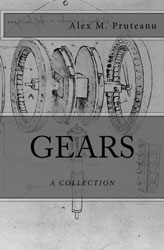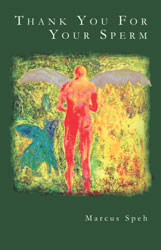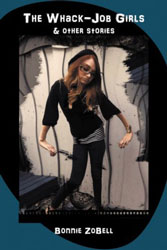Cervena Barva Press Studio Events
CERVENA BARVA PRESS READING SERIES
TUESDAY AUGUST 13th at 7:00PM
Featuring: Marlaina B. Nugent | Myles Gordon |
Kathleen Spivack
Marlaina B. Nugent is a writer of poetry, prose, and memoir.
Her first poetry book, PAST THE LIGHT, is forthcoming from
Finishing Line Press. She is the author/illustrator of a children's
book, THE JOY-JOY-JOY SONG, (A.A.Daveen Publishing, 2012).
Her exhibitions are multi-art studies in textile arts, photography,
poetry. A series of prose poems, based on her life while living in Barbados, is forthcoming from
North Dakota Quarterly. Marlaina works as an adjunct professor of English/Drama.
Myles Gordon is a teacher and writer living in Newton.
His Book, Inside The Splintered Wood, was just published
by Tebot Bach Press. He is a past winner of The Grolier Poetry Prize, The Helen Kay Chapbook Competition,
and an AWP Intro. Award - Poetry. He has published poems in periodicals such as Rattle, Slipstream,
and Main Street Rag. Prior to teaching he produced television programs in the Boston area, winning four
New England Emmy Awards for his work.
Kathleen Spivack's newest book, With Robert Lowell and His Circle, a memoir, is just out from the
University Press of New England. A History of Yearning (2010) won the Sow's Ear International Poetry
Chapbook Prize and also won first prize in the poetry book category at the London Book Festival.
Recent poems have won first prizes including the Allen Ginsberg Memorial Poetry Award and the
New England Poetry Club's Erika Mumford Prize. She has also won several Solas International Best Essay awards.
Residencies include the Radcliffe Institute, Yaddo, The MacDowell Colony and the American Academy in Rome.
Fellowships include grants from the National Endowment for the Arts and the Fulbright Commission.
She teaches in Boston and Paris.
Admission is $3.00. Refreshments served.
Cervena Barva Press Reading Series Schedule for September
For more details, please check the readings page at:
http://www.cervenabarvapress.com/readings.htm
Monday, September 9th: Sean Thomas Dougherty and Wendy Mnookin
Wednesday, September 11th: Carolyn Gregory and Jessica Harman
Thursday, September 12th: CD Collins, Kathryn Kulpa, and Judah Leblang
Monday, September 16th: Jean Monahan and Kim Vaeth
Thursday, September 19th: Danielle Georges and Alice Kociemba
Tuesday, September 24th: Susan Donnelly, Wendy Drexler, and Ellen Steinbaum
Thursday, September 26th: Jennifer Barber, Aimee Sands, and Nicole Terez
Monday, September 30th: (Fiction Night) Martin Golan and Luke Salisbury

It was a good summer for reading. Listed in this Raves are three wonderful books that I enjoyed reading.
Gears, Thank You For Your Sperm, and The Whack-Job Girls were edgy, risky, funny, and just so well written.
If you don't own these books, buy them! They are so worth the read. The best books I've read in a long time.
Look for a review of these books soon in our forthcoming newletters.
More of my summer reads next month.

Gears by Alex Pruteanu
In his first collection, Pruteanu delivers a series of fictitious "cogs" which grind together and
move forward with the momentum and impact of a speeding freight train. Reminiscent of Kafka and Camus
and even the great Russian novelists, Pruteanu displays that rarest ability to create believable and
entertaining allegory, while at the same time deftly omitting crucial elements, allowing the reader
to interpret his or her own meaning. The result is a series of machinations on love and death,
oppression and adversity, identity and purpose; in effect, the machine strips away our
options-and the world opens up.
"Gears is an unforgettable collection that strikes a match, lighting up the shadows of
Gogol and Vonnegut in more than a few raucous smokes together. Pruteanu is a master of
language, character and submersion.Gears is deep waters. Get ready to go under."
-Meg Tuite, author of Domestic Apparition and Implosion
To order:
http://www.amazon.com/Gears-Collection-Alex-M-Pruteanu/dp/0984009329/ref=sr_1_1?ie=UTF8&qid=1375287520&sr=8-1&keywords=alex+pruteanu

Thank You For Your Sperm by Marcus Speh
(MadHat Press, 2013)
"Thank You For Your Sperm" is a collection of 80 short and very short stories, which writer John Minichillo
calls "short brilliant playful poetic blasts: a baby's first word is 'Hitler', the Greek God Mars donates
his divine seed to a fertility clinic, a portal turns spiders into flowers, The Serious Writer buys an iPad,
a mother burns, an autistic child listens. Marcus Speh, a German writer living in Germany, has a better
command of English than just about anyone. His short pieces are sometimes personal, often poignant, and
always perfect."
Marcus Speh is a thrilling writer, an international force, a swashbuckler and cafe quick sketch artist,
a boulevardier, a man of many faces (and at one point, dual literary personalities) who takes chances,
gets laughs, raises hackles or metaphysical questions, challenges everything, upsets carts and still
makes the world a finer, funnier, more poignant place with his gifts. He is deeply, widely read,
and what was called, in the days of Randall Jarrell, a man of letters. Highly recommended!"
-James Robison, author of The Illustrator
To order: http://madhat-press.com/products/marcus-speh-book

The Whack-Job Girls by Bonnie Zobell
(Monkey Puzzle Press, 2013)
Bonnie ZoBell is my favorite sort of whack-job girl - a writer with a sharp eye, a sharper tongue,
and a reckless heart. Read this book. Then read it again.
-Steve Almond, author of God Bless America
To order: http://monkeypuzzlepress.com/books/the-whack-job-girls/

Talk about the writing scene while growing up in Albania.
I wasn't aware of there being much of a writing scene in Albania when I was growing up. I also wasn’t that much into
writing growing up. I disliked poetry all through high school. I do remember this one time, when I must have been 10
years old or so, my mother, who is also a poet, took me along to one of her friend’s house and the two of them worked
for hours on pages and pages they had spread out all over the living room. I understood they were working on poems,
but only years later did I realize they were going through the process of assembling a manuscript. I know my mother
had a few poet friends she talked about and/or visited with. There were very few well-known writers while growing up.
They were the names that had always been, sort of. There were no new writers for the longest time. You could count
the contemporary Albanian poets in one hand.
How has growing up in a police state affected your writing?
That's a really good question. I'm not sure I have an answer to this yet. I do think that growing up under a
totalitarian government has made me more of an observer. I felt watched and I think I practiced a lot of
watching right back.
Did you ever have to hide books you were reading?
No. A lot of good literature just wasn't available, or simply didn't exist in translation, so I couldn't even
access it. The Bible wasn't available but my grandmother had one in Greek which she read daily and translated
for us daily. She would have to hide that every time the door bell rang, at least until I turned 13.
When did you start to write?
I wrote a poem at 6 years old, then some rhyme and short stories throughout high school in Albania. But I
didn't really start to write poetry until a few years after moving to the States when I had gotten more
comfortable in English.
Do you write in Albanian first then English?
I've been writing in English since 1999.
Who are some of your favorite authors to read and why?
I am drawn to writers whose voices and imagination surprise me with their honesty and originality. I was just
reading Galway Kinnell today and came across "Fergus Falling" for the first time. The way he imagines a fisherman
"only the pinetops can see", describing it through one long sentence at the end of the poem, feels almost like a
net he's casting and I become the pickerel that fisherman is waiting to catch. I am drawn to any type of writing
that transforms me and my experience of reading it - the type of writing that transcends the sum of its parts.
I usually return to Li-Young Lee, Louise Glück, Wallace Stevens, Yasunari Kawabata, Vladimir Nabokov, Milan Kundera,
Luljeta Lleshanaku, Jane Hirshfield, because all these writers are very successful at doing that, quite
naturally.
Even though you can write whatever you want in the USA, do you ever find yourself
watching what you write because of growing up under Communism?
No. On the contrary, I feel like I can say anything here. I am the most honest when I write. I think growing up
under Communism has made me much more reserved and I am often quiet in social situations. But my writing is my
voice and it is one place where I'm not afraid to articulate myself.
You also have lived in India and Thailand. Where do these countries/cultures come into your writing? What did
you do while you were there?
I went to teach in Thailand right after I finished an MA in English at Simmons College and ended up staying
there for four years. My ex-husband is Indian and I often visited his home and other parts of India throughout
those years. Being exposed to these countries and cultures only made me less afraid, less anxious about what we
perceive as differences among us. At the end of the day, when I'm jogging late at night down the street,
whether I'm in Thailand, Albania or somewhere in Framingham, Massachusetts, the families I see behind lit
windows are the same - we're all trying to keep this corner of ours lit a little longer.
Bread on Running Waters was just published by Fenway Press with an Introduction
by Rosanna Warren. Talk about your new book.
My new book is something of an old book really. I don't write all that frequently and I tend to revise something
on and on for years. The book starts with poems set in Albania described from a child's/young teenager's point
of view. I was consciously exploring memory throughout the poems in this section and was particularly interested
in what I could get by adopting a child's persona. As it's often true when you adopt a persona for your poems,
the result was liberating and I felt like I had just found the keys to this whole new childhood that was never
mine but which felt universal. "Children's Story" is such a poem and it's not exactly set in Albania or anywhere
in particular. I think it's just set in Childhood which, like May Sarton, I believe is very much "a place as
well as a time."
The second section of the book explores relationships. These poems are mainly set up as portraits of
couples in various settings: in a marriage, on a date, in a photograph, around a dinner table, etc.
I never set out to write a series of "portraits of couples". These poems, too, were written through
the course of many years and they just happened to fit together by this time in the process of
completing the book.
The third section, "Song," which is one long poem made up of mini-poems is a retelling of the loss of
my aunt. Everything about her death was tragic and ugly. I remember who she was before she got married and
before we left Albania. She had an incredible singing voice and was incredibly alive. And then she was
never quite like that again. I tried to imagine her death telling about it through the perspective of a
child whose father suffers a similar tragic death.
The rest of the book touches on departures and arrivals in different countries and the ultimate arrival - that
of feeling at home, especially feeling at home when you find your own voice.
Where do you like to write? Do you have a favorite room or place?
I don't really have a favorite place. I usually write at home, in my living room couch or an armchair in my little
studio. Many times I write on the floor because I usually like to sit there with a bunch of books around me that I
have just pulled out from shelves. I know I need to be alone to be able to write. I don't mind if other people
are in the house, but they would have to be in another room. When I'm traveling, I often don't talk to the people
in the car or plane with me, because I like to be in my head when I travel and some lines come to me then.
I don't need to write these down. They usually come back to me days or weeks later.
What are you working on right now?
Not much work at the moment. It is summer. I'm off from teaching. It's been nice to just live lately.
Order Bread on Running Waters at Fenway Press.


If you would like to be added to my monthly e-mail newsletter, which gives information on readings,
book signings, contests, workshops, and other related topics...
To subscribe to the newsletter send an email to:
newsletter@cervenabarvapress.com
with "newsletter" or "subscribe" in the subject line.
To unsubscribe from the newsletter send an email to:
unsubscribenewsletter@cervenabarvapress.com
with "unsubscribe" in the subject line.

Index |
Bookstore |
Image Gallery |
Submissions |
Newsletter |
Readings |
Interviews |
Book Reviews |
Workshops |
Fundraising |
Contact |
Links
Copyright © 2005-2013 ČERVENÁ BARVA PRESS - All
Rights Reserved
|

